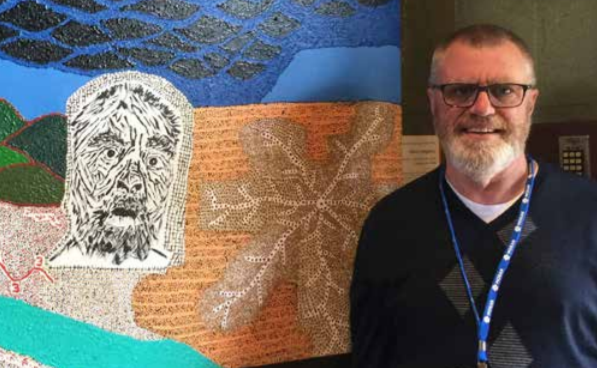A National Day for Australia: the need for a national conversation
Features
“It seems to me that the most effective and unifying of National Days are those which seek to build on a sense of unity or common purpose that is shared across the nation,” says The Very Rev’d Dr Peter Catt

This week, as a nation, we find ourselves once again challenged to explore what it is to be Australian, and to reflect on how we celebrate our national life. Like many other nations, one of the ways we seek to celebrate being ‘us’ is through the observance of a National Day. In our case, it is currently Australia Day, which is observed on the anniversary of the arrival of the First Fleet; the day when British people arrived to settle in or occupy the Australian continent. The use of this date for the observance of Australia Day is becoming increasingly contentious, with many labelling it Survival Day or Invasion Day.
As we look to how we might navigate the current controversy over the date of our National Day, it is helpful to take a look at the events that other nations use as the anchor for their National Day.
The most common occasion chosen by countries for the national celebration is the anniversary of the day they gained independence from Colonial rule or from an occupying force. The USA, Indonesia, Papua New Guinea, Zambia, Iraq, Haiti, Jamaica and Timor Leste are examples. The French National Day is held on the anniversary of the storming of The Bastille, a turning point in the French Revolution and in the establishment of the Republic. The people of French Guinea hold their National Day on the anniversary of the abolition of slavery. In Yemen they celebrate Unity Day, the day when North and South Yemen came together to form one nation. A number of other countries, including Germany and the United Arab Emirates celebrate unification. Spain’s national day is held on the anniversary of Columbus’ ‘discovery’ of America, and in Norway it is on the anniversary of the day the Constitution was signed. The people of Aruba, a small South American nation which is part of the Kingdom of the Netherlands, celebrate their common life on Flag Day, the anniversary of the day they adopted their own flag. Scotland, Wales and England (the latter in a quasi-official way), hold their National Day on the feast of their patron saints (Andrew, David and George), while the United Kingdom doesn’t really have a National Day, although the Queen’s Official Birthday in June plays something of that role for them.
While my explorations of this are by no means exhaustive, I note that I could not find any nation other than Australia that observed its National Day on the anniversary of the arrival of the colonising power. The closest is the National Day of the Falkland Islands which is held on the anniversary of the first sighting of the Islands by the British. The other nations with a history that most closely mirrors Australia’s, Canada and New Zealand, have chosen not to celebrate the date of colonisation. Canada Day is held on the anniversary of the unification of three separate British Dominions (a Unity or Federation day) and New Zealand observes Waitangi Day, the day when the treaty between the Maori and the colonial powers was signed.
Advertisement
It seems to me that the most effective and unifying of National Days are those which seek to build on a sense of unity or common purpose that is shared across the nation. The celebration of the day cannot bring about a unity or sense of shared purpose that doesn’t already exist. In other words, the unity cannot be manufactured or achieved by clever marketing. This means that the controversy around Australia Day is telling us that our national identity cannot come together around the celebration of the arrival of the First Fleet. The fact that no other nation celebrates events similar to those we build our National Day around confirms that we need to look to some other part of our life for the basis of our celebration of nationhood.
On that basis, I think we can say that the current Australia Day is broken and that it cannot be fixed.
A mature national conversation will be required to find a new National Day.
For those of us who belong to communities of faith, the important question in my view is what can we bring to that conversation?
Firstly, I think we can bring to the table a different expression of subjectivity to that possessed by some of the other contributors to such a conversation. Stanley Hauerwas and William Willimon argue that Christians should see themselves as resident aliens of the various nations in which we find themselves. This means that we can attempt to sit somewhat lightly on the idea of national identity and so bring insightful and probing analysis to any conversation; asking questions of the other players, challenging the powerful and ensuring that those others would be silenced can be heard.
Advertisement
Secondly, at its best the Church can be a place of dialogue. While this capacity is under serious attack at present by those in the church who do not wish to dialogue, there are still many examples in the church of diverse communities discovering new ways of living through the use of dialogical processes; processes that allow all voices to be heard and new territory to be discovered. The operation of Open Space at the 2019 Anglican Church Southern Queensland Synod was a beautiful expression of this capacity. Churches that embrace this way of operating could offer themselves as holders of space for the national conversation about our national character and the National Day that would celebrate it.
In order for the Church to give its best to the conversation that the nation will inevitably have about our National Day, it will need to get on with doing its own work. Part of that work is to explore how we might become more indigenous; how we might become an Australian Church, a church grounded in the land and the landscape and the cycles of the seasons that occur here. The St John’s Cathedral podcast series, On the Way, explored some of that territory with The Rev’d Glenn Loughrey, First Nations person, Wiradjuri man and Anglican priest in an episode titled ‘Towards an Australian Church’.






